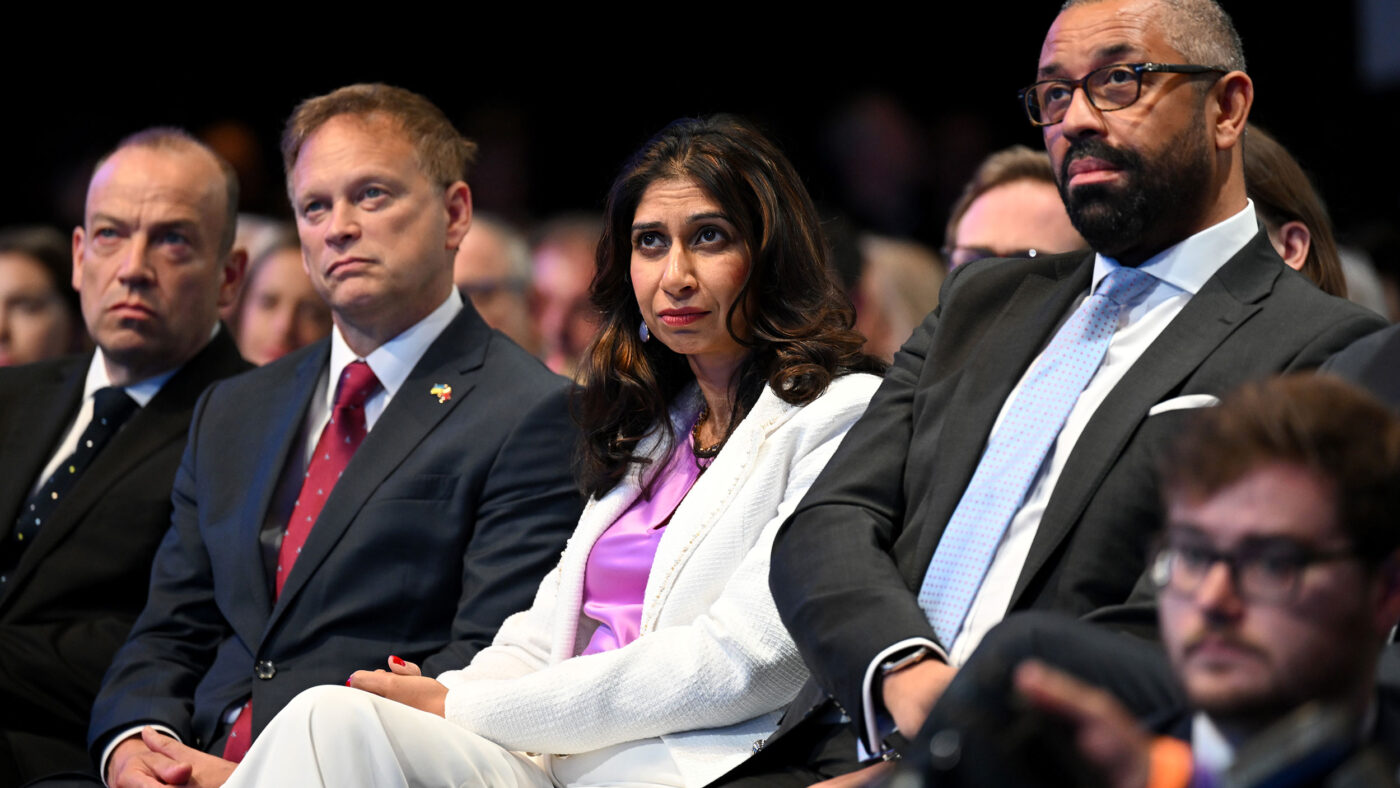Why was Suella Braverman sacked as Home Secretary? Opinions vary wildly between verbal incontinence and political incompetence. Wherever the truth lies – and we will hear her version in due course – her career was wrecked on the rocks of police ‘operational independence’. What does this mean and what are the implications for her successor?
For Braverman, it was a case of crossing the line between her obligations to the electorate as the Government’s accountable cabinet minister for public safety and into territory jealously guarded by Chief Constables. The 2011 Policing Protocol describes operational independence as follows, ‘a fundamental principle of British policing. It is expected by the Home Secretary that the professional discretion of the police service and oath of office give surety to the public that this shall not be compromised.’
The former Home Secretary was accused of driving a coach and horses through this vaunted principle by her remarks on ‘two tier’ policing. She suggested that there was a difference between the ways far right protests (rightly) received a stern response and the apparent impunity afforded by cops to Palestinian protestors who had blatantly antisemitic law breakers in their midst. There were also strong, and some would say completely inappropriate, public hints given by Braverman and No 10 that should the Met commissioner wish to ban the pro-Palestine parade on Armistice day, this would be met with a favourable answer.
Given that legislation sets the police a very high bar for asking for such a ban, Sir Mark Rowley was clearly furious with this degree of pressure being applied. In the end, he gambled, correctly, that conditions for a ban had not been met. He then oversaw a police operation that allowed the two-minute silence to be observed with dignity by veterans, and a later parade of more than 300,000 Palestine sympathisers, to go ahead largely without incident. Indeed the only serious violence endured by officers was when nine were injured dealing with a far right counter protest that threatened to breach the cordon around the Cenotaph. Given the chilling and at times apocalyptic predictions for the weekend this was a clear triumph for police independence.
But that’s nowhere near the whole story. Braverman’s departure has preserved, and arguably enhanced, operational independence, but this cannot be seen to fetter her successor’s perfectly legitimate democratic mandate to hold Chief Constables to account. James Cleverly ought to be very wary of also confining any criticism of the police to behind closed doors, as some allies of Rowley have been suggesting. The public have been appalled by acts of antisemitic criminal hatred, mob impunity and terrorist glorification taking place on our streets. The nuances of evidence gathering operations will be lost on them, as will the bleak calculus that means permanently outnumbered public order officers must tolerate extreme levels of abuse and intimidation before collars are felt. All of this has a corrosive effect on public morale and policing confidence. All of this lies squarely in Mr Cleverly’s in-tray.
The problem he has is, to use a Texas aphorism, that he’s all hat and no cattle. Home Secretaries have divested themselves of many of their powers to intervene with the advent of local Policing and Crime Commissioners (PCCs). These are often, with noble exceptions, sinecures for nonentities elected on extremely low turn-outs and invisible to the public. But they have the powers to hire and fire Police Chiefs and set strategic objectives. PCCs have resigned wholesale since they were created more than a decade ago to replace local police authorities. Breaches of data protection, sexting, nepotism, culture wars and just plain incompetence have been just a few of the reasons for their departure. The devolution of powers to such odte inept placeholders has left Home Secretaries with all the accountability and little of the direct power to force through Government objectives. While central government funding and the strategic policing requirement are levers of influence within Cleverly’s grasp, they are abstractions .
Suella Braverman came unstuck, as she would see it, for representing considerable and legitimate public concerns over the ability of the Metropolitan police to enforce the law on London’s streets. James Cleverly will not make that mistake – but he cannot also be seen to hide away from making interventions in this area. We will be here again. The Met and the CPS are still on probation with regard to the prosecution of religious or racial hate crimes.
Perhaps a way to take the heat out of that fraught relationship between the new Marsham street incumbent and Commissioner is to consider outsourcing the problem. In Northern Ireland, a parades commission, created in 1998 is a non-political independent body set up to facilitate contentious protests. It does so through the legal right to set conditions on parades including route, duration and symbols displayed or words spoken/sung. Both organisers and protestors can be subject to prosecution for violating the conditions. While not universally popular, especially with those whose activities it will curtail, the Commission has been successful in taking the tension out of contentious parades and setting clear conditions that can be enforced by the police and courts if breached.
It would be unfortunate if the new Home Secretary resiled from robust relationship with senior police officers in this country because of his predecessor’s gaffes. While it must be based on mutual respect and clear boundaries, we cannot allow public confidence in policing to curdle still more at a time when it has been battered by scandals, incompetence, distractions and now ingrained perceptions of appeasement. Reversing this trend is a political as well as a policing priority.
Click here to subscribe to our daily briefing – the best pieces from CapX and across the web.
CapX depends on the generosity of its readers. If you value what we do, please consider making a donation.


